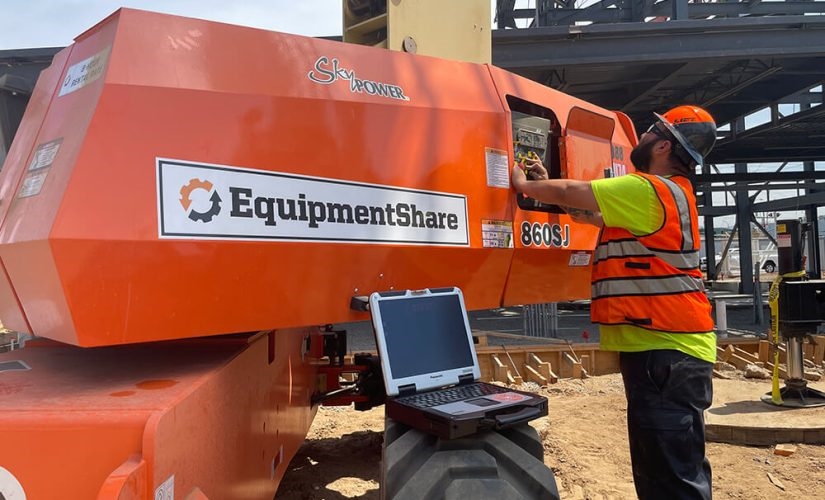Construction Management: Full Guide, Statistics

Construction management refers to planning, coordinating, and supervising a construction project from its beginning to completion. It involves controlling the project’s time, cost, and quality to meet the client’s requirements.
This process may include scheduling, cost management, quality management, contract administration, and safety management.
Key Takeaways
Important Takeaways About Construction Management
- Construction management involves planning and coordinating construction projects. This involves planning, coordinating, budgeting, and supervising projects from development to completion.
- It manages cost, time, and quality. Construction managers use specialized project management techniques to oversee a project’s planning, design, and construction from beginning to end, ensuring projects are delivered within the stipulated cost, schedule, and quality parameters.
- Safety is a crucial aspect of construction management. Flawed safety protocols can lead to injuries, lawsuits, and project delays. Therefore, A construction manager must enforce safety guidelines to protect workers and the public.
Job Outlook From U.S. Bureau of Labor Statistics
These statistics were sourced from the U.S. Bureau of Labor Statistics in 2021. See also our article on upcoming top trends for the construction industry.
Media Salary:
BLS reported a median salary of $ 98,890 annually or $ 47.55 per hour.
Number of Jobs:
BLS reported 478,500 jobs.
Typical Entry-level Education
BLS reported a Bachelor’s degree as typical entry-level education. “Construction managers typically need a bachelor’s degree in construction, business, engineering, or a related field.”
|
Featured Partner for Equipment Parts on EquipmentShares’s website
|
Roles of a Construction Manager
| Role | Description |
| Project Planning | The construction manager creates project plans and schedules, including defining milestones, deadlines, and resource allocation for the construction phase. |
| Budget Management | The construction manages costs, prepares budgets, and monitors expenses to ensure the project stays within the approved budget. |
| Resource Management | The construction manager manages and allocates labor, equipment, and materials to ensure the smooth execution of construction activities. |
| Quality Control | The construction manager implements quality standards throughout construction, ensuring adherence to specifications and codes. |
| Construction Oversight | The construction manager supervises construction teams, contractors, and subcontractors to ensure work is completed efficiently and safely. |
| Risk Assessment | The construction manager identifies potential risks and develops strategies to mitigate them ensuring the construction project progresses smoothly. |
| Safety Compliance | The construction manager ensures compliance with safety regulations and enforces safety protocols to prevent accidents and ensure a safe work environment. |
| Communication | The construction manager communicates effectively with project stakeholders, including clients, architects, engineers, and senior management. |
| Problem Solving | The construction manager addresses issues and resolves conflicts during construction to keep the project on track and avoid delays. |
| Change Management | The construction manager manages changes and modifications to the construction plan while considering their impact on the project’s timeline and budget. |
| Progress Reporting | The constriction manager provides regular updates on project progress, milestones achieved, and any deviations from the original plan to relevant parties. |
| Contract Administration | The constriction manager manages contracts and agreements with vendors, subcontractors, and suppliers, ensuring compliance with terms and conditions. |
| Quality Assurance | The constriction manager reviews quality assurance processes to ensure the construction meets the required standards and client expectations. |
| Project Closeout | The construction manager reviews project closeout activities, including final inspections, documentation, and handover to the client or end-users. |
|
Featured Partner for Equipment Parts on EquipmentShares’s website
|
Construction Manager Versus Project Manager
Construction Manager and Project Manager are two distinct roles, but they can often overlap in certain aspects depending on the nature and size of the project. Here are the key differences between a Construction Manager and a Project Manager:
The focus of Responsibility:
- Construction Manager: A construction manager’s primary responsibility is overseeing the construction process. They are more involved in the onsite activities, managing construction teams and contractors, and ensuring the timely and efficient execution of construction tasks. Construction managers focus on the technical aspects of the construction project.
- Project Manager: A project manager’s role is broader and encompasses the entire project from initiation to completion. They are responsible for planning, organizing, coordinating, and controlling all aspects of the project, including scope, budget, schedule, quality, and risk management. Project managers handle the overall project lifecycle, from initial planning to handover.
Scope of Work:
- Construction Manager: Their scope of work is primarily centered around construction-related activities, such as managing resources, machine maintenance, labor, equipment, and materials. They ensure the construction is carried out according to the design and specifications.
- Project Manager: Project managers have a broader scope beyond construction activities. They are involved in project planning, defining objectives, setting project goals, managing stakeholders, and making decisions that impact the project as a whole.
Timeline and Budget Management:
- Construction Manager: While they may be involved in managing aspects of the budget and timeline related to construction activities, their primary focus is on delivering the project’s construction phase within the given constraints.
- Project Manager: Project managers are responsible for the project timeline and budget. They monitor project progress, identify potential delays or cost overruns, and take necessary actions to keep the project on track.
Collaboration:
- Construction Manager: Construction managers work closely with architects, engineers, subcontractors, and construction teams to ensure the construction work is executed as planned.
- Project Manager: Project managers collaborate with various stakeholders, including clients, senior management, functional teams, and external partners, to ensure project goals align with the organization’s objectives.
Certification and Education:
- Construction Manager: While formal education in construction-related fields is standard, no standardized certification is required to become a construction manager. Experience and expertise in construction are typically valued.
- Project Manager: Project managers often hold certifications such as Project Management Professional (PMP) from the Project Management Institute (PMI) or other relevant certifications. They may have a background in various industries and are skilled in project management methodologies.
Project Phases:
- Construction Manager: Typically involved in the execution phase of the project, ensuring that construction work aligns with design and quality standards.
- Project Manager: Involved in all project phases, from initiation and planning to execution, monitoring, and closure.
In summary, a Construction Manager’s focus is primarily on the construction aspect of the project, whereas a Project Manager oversees the entire project, including its planning, execution, and successful delivery.
Both roles are essential for successful project completion, and depending on the project’s complexity, a construction manager may report to a project manager or the responsibilities may be combined into one role.
|
Featured Partner for Equipment Parts on EquipmentShares’s website
|
Importance of Construction Management
Construction management is crucial in the construction industry. It encompasses planning, coordinating, and executing a project, ensuring it is completed within the set timeline and budget and up to quality standards. It involves a multi-disciplinary approach to create a streamlined process, from feasibility and design to construction and maintenance.
Without effective construction management, projects can face overruns in time and budget, leading to potential risks and losses. It helps manage the complex facets of large projects, including legal matters, dealing with clients, personnel management, safety management, and maintaining project integrity. Thus, construction management significantly contributes to the successful, efficient, and effective execution of construction projects.
|
Featured Partner for Equipment Parts on EquipmentShares’s website
|
Explanation of Construction Management
Construction management, in its essence, is a professional service aimed at mastering the intricacies of the planning, design, and construction of a project from its inception to completion. This specialized form of management is utilized across different sectors ranging from residential, commercial, and industrial to environmental construction projects.
The primary purpose is to control the project’s time, cost, and quality, ensuring that every phase of the project, whether the estimation, scheduling, or construction process, meets standards and goals set by the client while adhering to the legal and safety requirements.
One of the primary uses of construction management is to coordinate and oversee a construction project meticulously. An efficient construction manager takes charge of all the components of the project, which include creating feasible project plans, supervising the selection of the contractors and construction team, streamlining the logistics of building materials and equipment, arranging relevant permits and documents, controlling costs, quality, and delivery times, as well as mitigating risks and potential complications.
This holistic approach to management eliminates any potential bottlenecks or setbacks during the construction process, fostering an environment for seamless project completion and client satisfaction.
|
Featured Partner for Equipment Parts on EquipmentShares’s website
|
Examples of Construction Management
- Building a Skyscraper: In this scenario, a construction management team would handle all aspects of the project from its inception to completion. This includes obtaining necessary permits, planning, budgeting, orchestrating all the involved parties like architects, engineers, and constructors, and ensuring all materials are procured on time and within budget. An example could be the construction management involved in the setting up One World Trade Center in New York.
- Constructing a Highway: Construction management in a highway project would involve designing the road’s layout, scheduling tasks and phases of construction, coordinating workers and subcontractors, dealing with environmental impact and safety issues, and working within the set budget and time frame. For example, construction management was integral in developing the Interstate Highway System in the USA.
- Development of a Residential Area: A construction management team would oversee the planning and construction of an entire residential district. The team might maintain communication with urban planners, civil engineers, and contractors, supervise the day-to-day activities, and ensure that requirements such as safety regulations and building codes are met. The construction management could exemplify this during the creation of The Villages, a well-known and planned retirement community in Florida.
|
Featured Partner for Equipment Parts on EquipmentShares’s website
|
Frequently Asked Questions (FAQ)
Q: What is construction management?
A: Construction management is a professional service that uses specialized project management techniques to oversee a project’s planning, design, and construction from beginning to end.
Q: What does a construction manager do?
A: A construction manager plans, directs, coordinates, and budgets activities concerned with the construction and maintenance of structures, facilities, and systems. They participate in the conceptual development of a construction project and oversee its organization, scheduling, and implementation.
Q: What is the importance of construction management?
A: Construction management is crucial because it ensures that every part of the construction project is executed as per plan, taking into account the quality, time, and cost, ensuring efficiency and preventing delays or overrun costs.
Q: What qualifications do you need to be a construction manager?
A: Typically, a construction manager needs at least a bachelor’s degree, often in construction science, construction management, architecture, or engineering. Some jobs may also require work experience in the field or a relevant certification.
Q: How does construction management impact project cost?
A: Good construction management can significantly reduce the overall cost of a project. It achieves this by ensuring efficient use of resources, preventing expensive delays, and ensuring the project stays within the budget.
Q: What are the phases involved in construction management?
A: The phases of construction management are project conception and initiation, definition and planning, project execution, project performance, and closure.
Q: Is construction management a profitable career?
A: Yes, construction management can be a profitable career, with salaries dependent on experience level, location, and scale of projects handled. As per the U.S. Bureau of Labor Statistics, the median pay for construction managers was approximately $ 98,000 in 2021.
Q: How is technology impacting construction management?
A: Technology significantly impacts construction management by offering digital solutions for project planning, scheduling, risk management, and onsite real-time project tracking. This helps enhance efficiency, reduce costs, and improve communication among stakeholders.
Image Credit: EquipmentShare
The post Construction Management: Full Guide, Statistics appeared first on ReadWrite.
(9)





